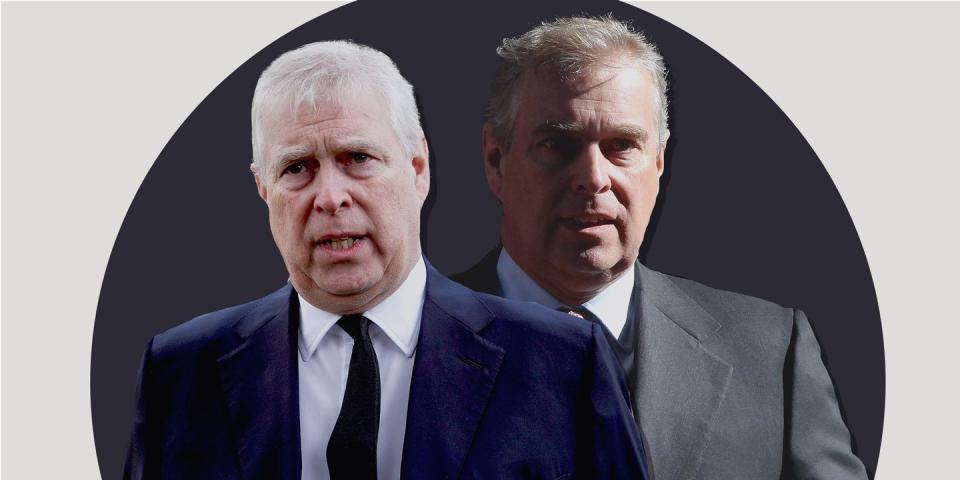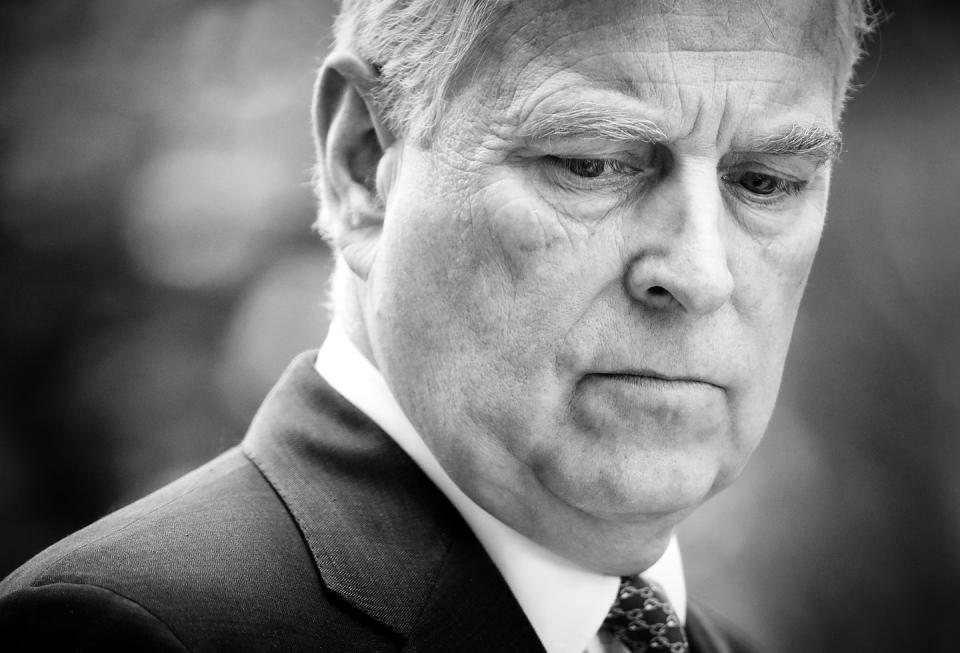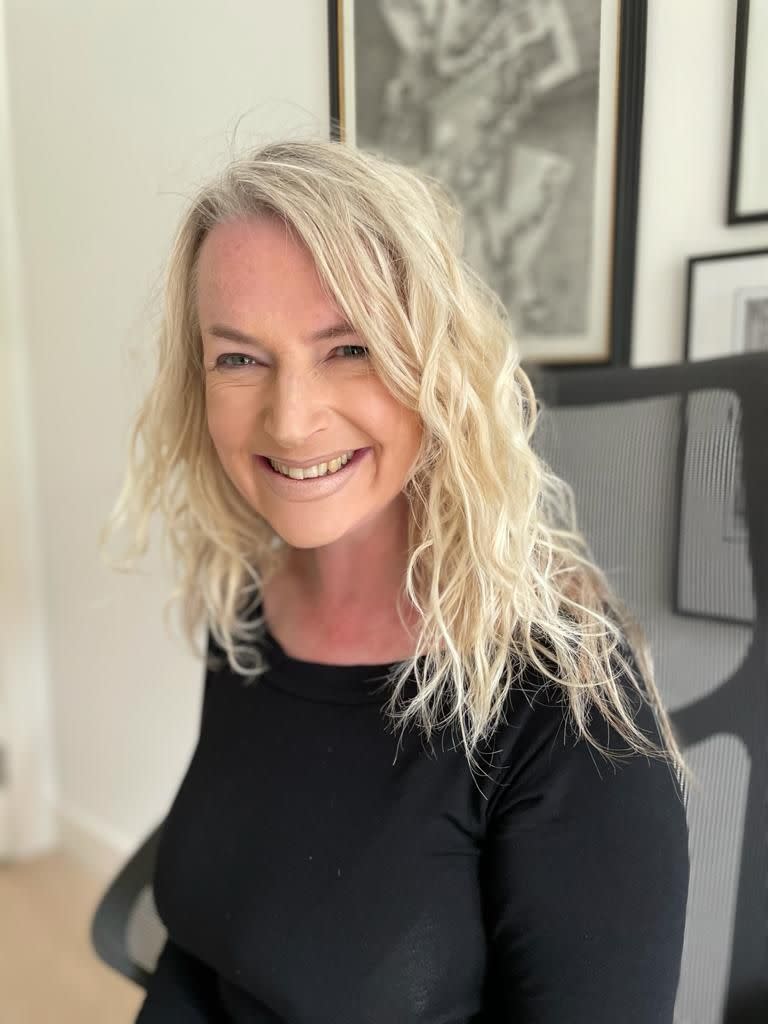How To Handle A (Royal) Scandal


Fifteen feet. That’s how far I am from the back of Prince Andrew’s chair. I can see the soles of his shiny shoes (hardly scuffed), the back of his head (new haircut), the bottoms of his trousers (tailored to a perfectly judged length) and the nervous movement in his left foot as it taps, taps, taps, over and over, against the ornate carpet. The chair itself is also pretty ornate (befitting a palace) but it seems very small, with him sitting in it, moving nervously from side to side, awaiting his fate.
That was in Buckingham Palace, almost three years ago, in November 2019. I was the interviews producer at BBC Newsnight. The negotiator. I had started these particular negotiations months beforehand. I couldn’t believe he’d actually, finally said ‘yes’.

Just two days after I sat there, cramped in a chair, up against a palace wall, the nation heard for the first time the contents of that extraordinary interview. You sat agog, as I had two days earlier, listening to a member of the Royal family talk about his friendship with a sex offender, about his sexual behaviour, about THAT Pizza Express alibi, and his so-called inability to sweat. It was the interview that launched a thousand memes, that rallied the nation behind the inescapable truth: that Prince Andrew had made a terrible mistake in agreeing to do the interview and that every answer he gave was a virtual masterclass in how not to handle a scandal.
In fact, the interview is now used as the best example of when things go terribly wrong, and exactly what not to do by hundreds of PR and communications professionals around the world. It is the epitome of how to make your situation worse in a single hour of your life. It is the perfect example of a total PR shit show.
The reason we all got to hear his answers that day was because of months and months of painstaking negotiation. I had to convince him, to convince his chief of staff, Amanda Thirsk, that an interview was the right thing to do. 'How on earth did you convince him to do it?' is the question I get asked almost every day. How do you convince someone, caught in a global scandal, facing possible criminal proceedings, to bare their soul in front of a TV camera with one of the foremost TV interrogators in the land?
In truth, it’s all about finding the ‘sweet spot’ – that crucial piece of motivation, of human psychology, that will make the difference between a ‘yes’ and a ‘no’.
If it was Matt Hancock? He’d want to redeem himself on air, to return from the back benches into the ministerial fold. Alec Baldwin? To atone for the death he caused and attempt to restore his reputation. Jerry Hall? Get her version of the end of the marriage on record for posterity.

In Andrew’s case, I’d researched him meticulously. I knew he was robust, used to getting his own way, likely to be certain of his capabilities, regardless of any advice he was given. I also knew that he was hoping to walk his daughter Beatrice down the aisle at her wedding, to celebrate his 60th birthday in style and to return to his lifestyle that he’d enjoyed prior to his fatal association with Jeffrey Epstein, and the allegations of sexual assault brought against him by Virginia Roberts Guiffre, who refused to let him evade justice.
For him, the motivation was clear – in order to have a semblance of normality again, he’d have to vindicate himself, to explain himself, to answer the allegations against him. It seems insane now to think that he probably assumed the interview would clear his name, given how badly it went, but, at the time, it was a plausible outcome. After all, no one ever thinks they’re going to do a bad interview. He had confidence in his own capabilities. That was to prove his undoing.

In fact, he was so confident that, as the interview ended, and I looked at the floor, unable to comprehend what we’d just witnessed, it became clear that Prince Andrew actually thought it had gone well. Very well. His endless bad answers, which sealed his fate, were the most extraordinary confession on camera that any of us had witnessed in our careers. As he blithely took interviewer Emily Maitlis on a tour of the palace, the extent of his misunderstanding about how well it had gone, was the thing that astonished me the most.
Of course, Emily was brilliant. But, if you go back and watch the interview again (which I hope you will), you’ll see that the questions themselves were extremely simple. This was not some aggressive mauling, some Frost/Nixon type interrogation. What it was? A masterclass in calm, methodical questioning. She was repose to his drama, she was cool to his discomfort, she was the recipient of his endless, rambling confession. It wasn’t her questions that skewered him, it was his relentlessly appalling answers.
We’d seen Newsnight end careers before – I’d watched from the wings as the then Treasury Minister, Chloe Smith, saw her reputation crumble under Paxman’s questions. She couldn’t answer basic questions about a fuel rise. She seemed to confuse deficit and debt. Her political career crashed. I’d watched as the CEO of Coca Cola squirmed as Paxman poured sachet after sachet of sugar out in front of him, on live tv, to show the drink’s unhealthy contents. I’d seen the former chairman of the Co-Op bank, Paul Flowers answer excruciating questions about his fall from grace – the so called ‘Crystal Methodist.’ But this was more cataclysmic than all of those put together.
We, of course, had already met him at the final negotiations, in the week before the interview finally went ahead. In a tiny, cramped room in Buckingham Palace, we’d heard the answers already. We’d kept our repose as he told us. We’d seen how much he was willing to reveal, how far he’d go. We knew the nature of the interviewee. We knew what we might have. I could barely believe he’d agree. I was in shock when we got the call that he wanted to go ahead.
As a journalist sitting in that room, I knew we had the scoop of the decade. And, as a former criminal defence barrister, listening to those answers, I knew that Prince Andrew had opened himself up to possible litigation and liabilities. The answers were, at best, implausible. At worst, they were a pandora’s box of possibility for a canny prosecutor, who’d be able to tie him in knots over his contradictions and inconsistencies, over his alleged medical condition, his Woking alibi, his vague memories on crucial factors in the case.
That legal training proved crucial in understanding scandals throughout my career. I’d always known how to walk into a cell with an (alleged) murderer or rapist. To handle myself. To get to the crux of what was at stake for them. And that instinct – to pinpoint what is at the core of someone’s motivation, what they could lose in terms of reputation, what criminal proceedings they could face, what was their greatest fear – proved essential time and time again.

And that’s where the handling of this particular scandal went so terribly wrong. It went wrong because he had overestimated his own capabilities (a common error), and because, despite the fact that they had no doubt spent time rehearsing his answers, he didn’t even manage to do the most important thing of all – to simply apologise. To express regret. To give short, and credible, explanations. To sound convincing. In the end, his confessions didn’t vindicate him. They skewered him. The interview – which could have saved his reputation, ended up casting him into royal obscurity and causing the Queen and the monarchy relentless pain and damage. It’s a masterclass in what not to do. It was the scoop of the century.
For anyone on the cusp of scandals – be they members of the Royal Family or Prime Ministers, it all comes down to this. Take responsibility for your actions. Tell the truth or say nothing. Because you’ll likely always be found out in the end.

SCOOPS: Behind the Scenes of the BBC's Most Shocking Interviews by Sam McAlister is published by Oneworld on 14 July, hardback £16.99
You Might Also Like


